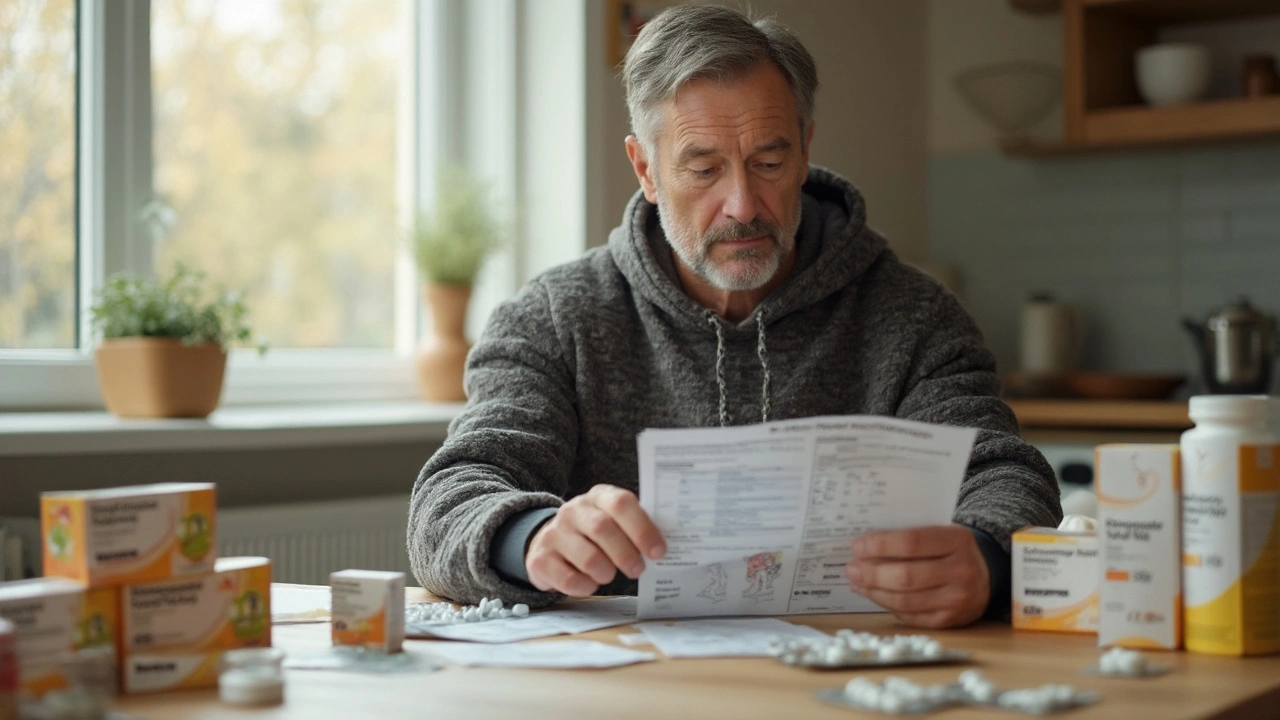GERD Medications: What Works, How They Work, and Safe Use Tips
If you’re battling heartburn or a sour taste after meals, chances are your doctor mentioned GERD medication. These drugs aren’t magic pills; they each target acid in a specific way. Knowing which type fits your lifestyle can cut down symptoms fast and keep side effects low.
Types of GERD Drugs You’ll See on a Prescription
Proton‑pump inhibitors (PPIs) like omeprazole, esomeprazole, and lansoprazole are the heavy hitters. They shut down the stomach’s acid pump for up to 24 hours, which means fewer nighttime burn episodes. Most people start with a low dose and only step up if relief isn’t enough.
H2 blockers such as ranitidine (when it was on the market) or famotidine work slower but are useful for mild‑to‑moderate reflux. They block histamine receptors that signal acid production, so they’re a good “on‑demand” option after big meals.
Antacids like Tums, Maalox, or Mylanta neutralize acid already in the stomach. They give quick relief but don’t prevent future attacks. Think of them as the emergency brake while PPIs and H2 blockers handle long‑term control.
Practical Tips for Taking GERD Medications Safely
Take PPIs 30 minutes before breakfast, not with food, because they need an empty stomach to bind effectively. If you miss a dose, just take the next one at your regular time—don’t double up.
For H2 blockers, timing matters too. A morning dose can curb daytime heartburn; an evening dose helps keep nighttime symptoms away. Avoid combining two acid‑suppressing drugs unless your doctor says so.
Antacids are fine with meals, but don’t overdo them. Too many can cause constipation or alter mineral absorption. If you find yourself reaching for antacids more than three times a day, it’s time to talk to a clinician about stepping up therapy.
Watch out for drug interactions. PPIs can lower the effectiveness of certain antivirals, blood thinners, and heart medicines. Keep a list of everything you take—prescription, OTC, supplements—and share it with your pharmacist.
Finally, lifestyle tweaks boost any medication’s effect. Eat smaller portions, avoid lying down for two hours after meals, and steer clear of trigger foods like spicy dishes, citrus, and caffeine.
Understanding the differences between PPIs, H2 blockers, and antacids lets you pick the right tool for your reflux. Pair the right drug with smart habits, and you’ll notice fewer burn episodes and a calmer stomach.
